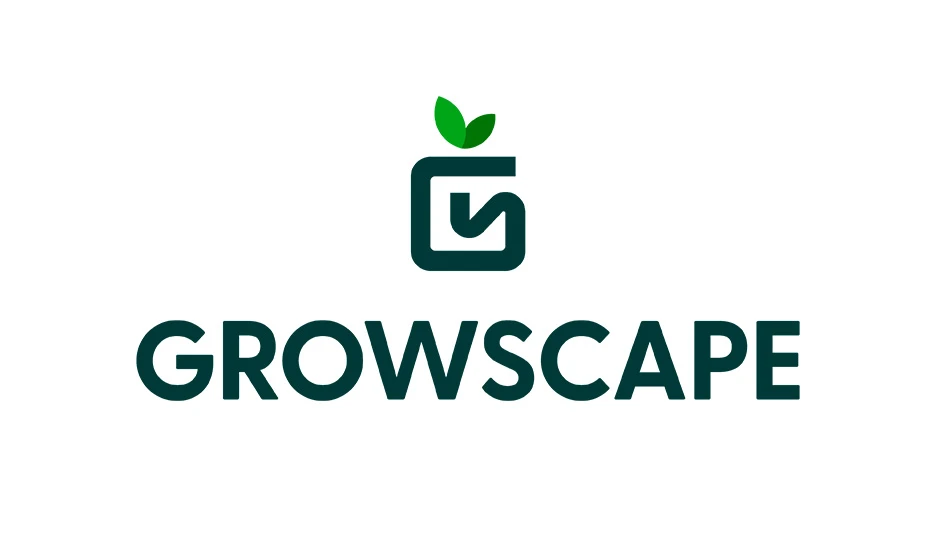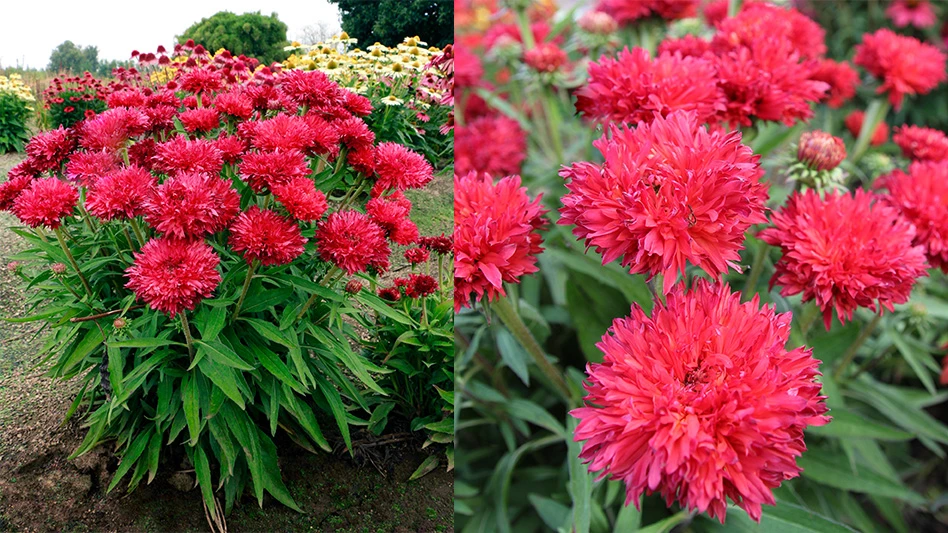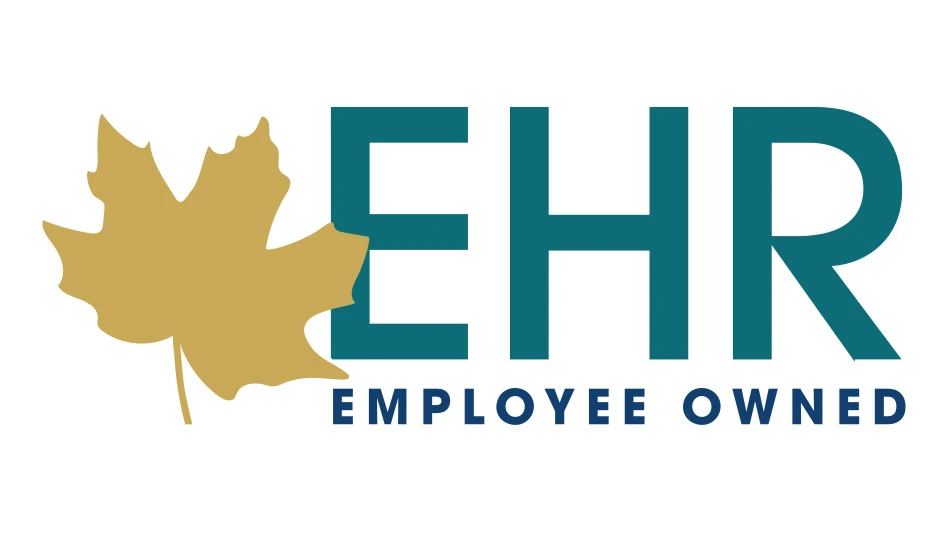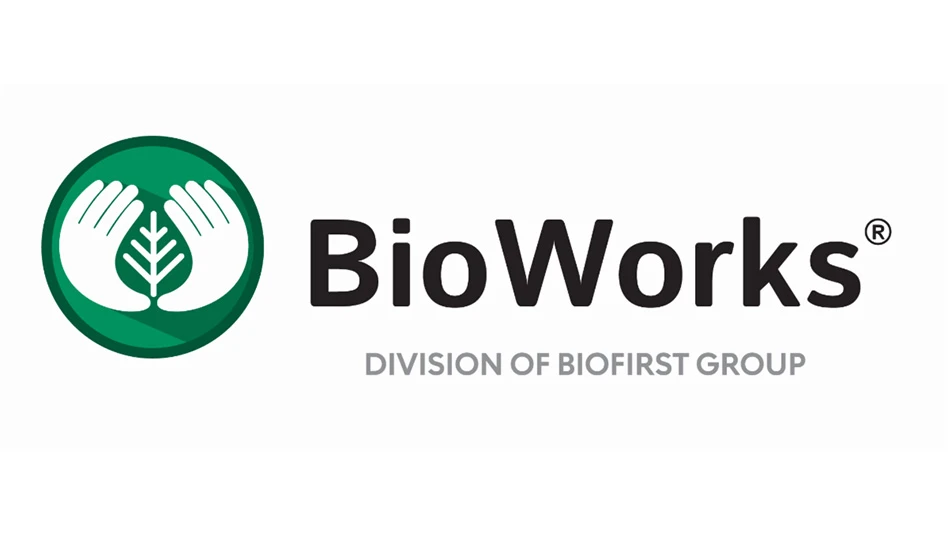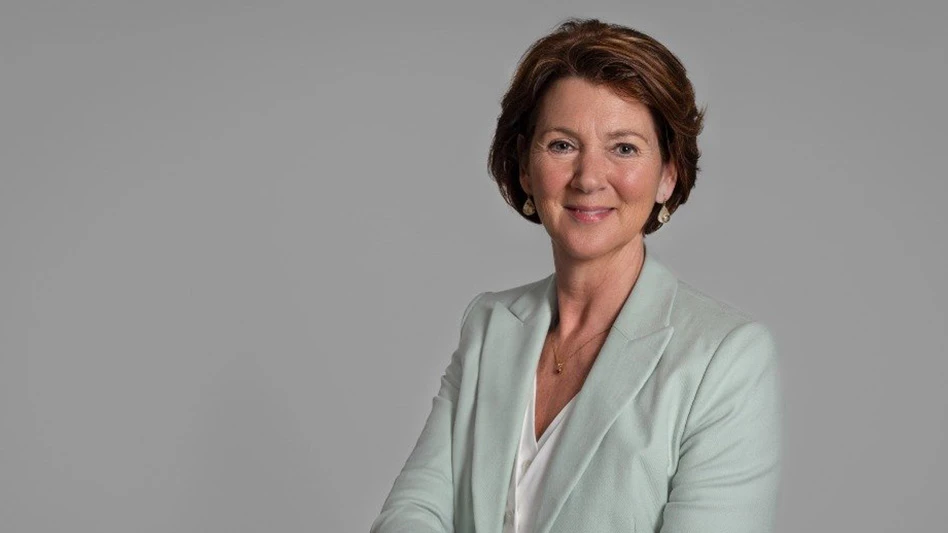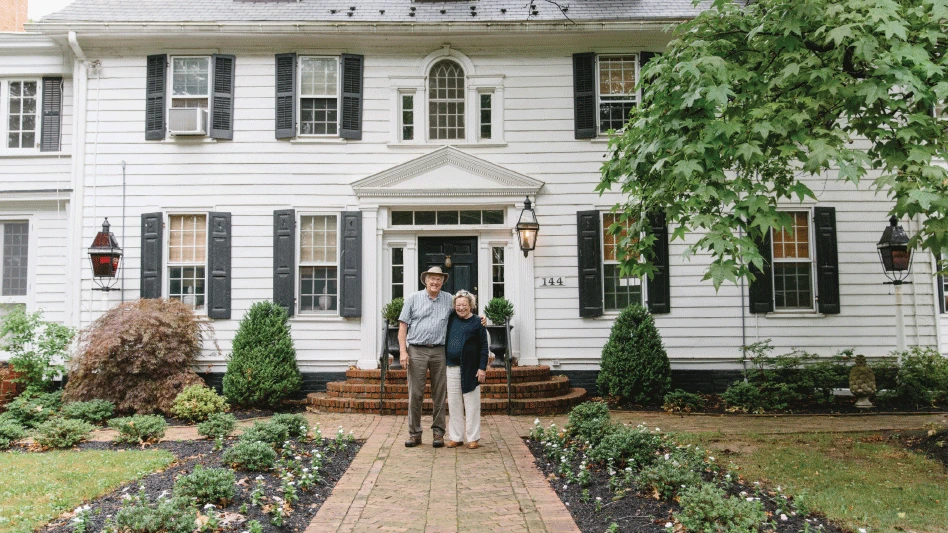
Photos by Parikha Mehta
When Lawrence Q. (Larry) Kuser grew up on Fernbrook Farms, two generations of his family had already made the New Jersey land their home. In those days, a dairy farm under the care of a farm manager was the dominant business on what was largely a gentleman farmer’s estate.
As Larry’s 79th birthday now draws near, the Kuser family is celebrating 125 years of Fernbrook ownership and stewardship — and the property looks very different than it did then.
Today, Fernbrook Farms embraces more than 350 acres of nursery production, an exclusive wedding and event venue (The Inn at Fernbrook Farms, the site’s converted Georgian-style home), vegetable production for Fernbrook CSA (community supported agriculture) supplying more than 500 member families, and a year-round nonprofit 501(c)3 Environmental Education Center that reaches more than 5,000 families each year.
At the heart of it all is passion for sharing the farm and knowledge about plants, food and nature with everyone it touches.

From country estate to Christmas trees
When Larry’s grandfather, John L. Kuser, purchased the property in 1899, he set Fernbrook on a course for excellence and diversity. Impassioned conservationists, the first-generation Kusers enhanced the land with formal English gardens, a golf course, an art gallery, a wildlife refuge and a meticulously planned forest designed — like the great landscape architects of the time — to look as though man had no part in its planting.
John L. Kuser and his son Walter, Larry’s father, were businessmen, not farmers. After John’s death in 1937, Walter expanded on his parents’ vision. Around 1940, he launched the farm’s dairy business. Fernbrook’s dairy era continued until 1964, when the family sold the herd and rented property to a grain farmer instead.
It was 1974 when Larry and his wife, Susie, came home to live on the farm. The move signaled a new era of farming at Fernbrook — but not with traditional row crops. After Walter passed in 1967, Larry’s mother continued to lease out much of the land.
But Larry gradually started reclaiming “bits and pieces” of the farm. “I’ve always loved growing things,” he recalls. “That was always my fascination as a boy.”

One of those bits was 2 acres of land planted in winter wheat. Larry, a weekday educator and weekend farmer then, planted the plot with seedlings for a cut-your-own Christmas tree farm. When he skipped a few weekends, the wheat won out. Most of the trees went the way of a combine. “That was our ignominious beginning,” he says with a laugh.
But he persevered. 1981’s Christmas tree season was a turning point. “I was a teacher in a private school — dean of students, master’s degree, all this good stuff — and I made more money selling Christmas trees than my salary. So, my wife and I said, ‘You know what, maybe now’s the time.’”
Larry left teaching to focus on growing full time. “I look back and think about how little I knew about the industry, how little I knew about growing all kinds of different plants,” he says. “But all I can say is God is good and we’ve stuck it out and been able to expand and be successful.”
In 1984, Larry and Susie took over running the entire farm.

From Christmas trees to nursery stock
To understand Fernbrook’s modern success, it helps to revisit the 1970s. Much of Larry’s summer vacations from teaching were spent with Betty Cummins, a nursery manager from Colts Neck, New Jersey, who taught him how to propagate. He recalls when the nursery Betty managed was sold.
“Her home was on a 2-and-a-half acre lot, and I built her a little greenhouse. It was 80 feet long and 16 feet wide, and she made a living out of that greenhouse for probably 25 years propagating plants,” he shares.
“She shipped them all over the world, and she could, as we say, put roots on a telephone pole. She was a marvelous propagator and introduced me to many people in the industry who were really knowledgeable, just premium nursery people. Thanks to her, I got to know so many respected nursery people.”

Following his Christmas tree success, Larry chose to diversify. In 1982, the Kusers opened a retail nursery business. That was followed by landscaping in the late 1980s and ’90s. Ultimately, they settled into the wholesale nursery business.
From 2 acres of Christmas trees lost to the combine, Fernbrook Nursery has grown to 350 acres of field-grown nursery crops and 7 acres of container-grown nursery stock. About 150 acres of the nursery lie on the original estate’s remaining 230 acres, with the balance leased from six other farms. Fernbrook plants go out to customers from Maine to Virginia.
Kevin Fenning, who came to Fernbrook Nursery 12 years ago as the nursery field manager, oversees all, including the shipping logistics — not an easy task with multiple locations, some less convenient than others.
Not surprisingly, given Fernbrook’s emphasis on sharing knowledge, Kevin’s background includes educating others about horticulture, including the development of a formal curriculum for an educational institution and teaching horticulture courses to state and federal prison inmates. In 2022, he was named president of Fernbrook Nursery.

Diversification in nursery stock
Peruse the nursery’s availability list, and you’ll find a highly diverse selection. The nursery grows more than 400 species of plants between field and container production, which include many difficult-to-source, uncommon varieties. The nursery grows everything from container ornamental grasses and perennials to shrubs and large B&B shade trees.
While the inventory boasts a strong dose of natives and nativars, it also includes many nonnative plants. Larry and Kevin stress that while natives are in abundance at Fernbrook, the real key to their offerings is diversity and providing alternatives.
Larry points to the devastation caused by Emerald ash borer, which has left numerous communities “in the cornfield” without trees. He believes diversity — a healthy combination of native and nonnative plants — is the answer.
“It’s not just native. I’m not going to sit here banging the native gavel. I think it’s a combination of all of the above,” he says.

Kevin shares that the large offering of natives and nativars is both an active choice and a response to demand. The nursery does a great deal of work with New Jersey shade tree commissions, which are very concentrated on native plants.
While Fernbrook often buys in seedling liners and grows stock on, it’s increasingly focused on propagation, especially with hard-to-find species that necessitate collecting their own seed to grow the plants.
They share about a New Jersey Turnpike widening that, due to a New Jersey “no net loss” law, required 90,000 displaced trees be replaced. Fernbrook grew close to 20,000 trees for the project, which valued the genetic diversity of seedlings.
“The tree production really is now something that we try to do more and more in-house,” Larry says. “We’ve successfully been able to do some rooted cuttings, especially cherries, but also some other hardwoods. Other than that, we’ll grow them from seed.”
Kevin shares that the container program has also transitioned to larger sizes: “We’re increasing our container line, growing larger material. When I first got here, we were concentrating mainly on 3-gallon and 5- or 7-gallon. Now we’re into 10- and 15-gallon containers on certain crops.”

Diversification beyond the nursery
Larry’s penchant for diversification extends beyond the nursery. In 1996, a bed and breakfast called The Inn at Fernbrook Farms was launched in the property’s grand old circa-1760 Georgian-style home where Larry’s mother had lived. While The Inn drew some guests, things changed dramatically when someone asked to be married there. The venue, which has had a chef since 2015, hosts 25 to 30 weddings annually.
In 2005, serendipity intervened when a mother and her kids stopped by on a weekday to look at plants. Larry asked the kids if they were playing hooky. They said they were homeschooled. After a brief explanation, Larry immediately agreed to let their homeschool group do a lesson at the farm.
That encounter blossomed into the nonprofit Environmental Education Center — in many ways now the heart of Fernbrook Farms, supported in part by the nursery operation’s success.
Larry’s son, Brian, who is also an educator, recalls the center’s start: “I was working in a residential camp in Vermont. My father and mother mentioned education on the farm to me, but me being in my mid-20s, I was like, ‘Yep, good luck with that. Have fun!’ Because through the years, they’ve tried a lot of different things. The ones that have lasted are the ones that you see now, but there were a lot of things that didn’t work out.”

A friend of Brian’s ended up running the program for Larry. Eventually, however, Brian conceded to running a summer camp in 2008. That turned into 2009, then 2010. When the program’s director got married and moved away, the program became what Brian calls “a captainless ship.”
His parents turned to him again. This time, conversations included a farm succession plan. “We agreed that I’d come back, run the Education Center and transition the farm into the next generation so that it could stay a farm and stay in the family,” he says. “That was 2013 that I left the indoor classroom. Now I like to say my classroom has no walls.”
In 2015, his family moved to the farm, marking the fifth generation of Kusers to live there.
The center’s programs include homeschool classes, school programs and vacation summer camps, all designed to provide kids with a better understanding of nature, food, agriculture and the environment. The programs reach more than 5,000 families annually.
Another part of this tapestry is the Fernbrook CSA, launched in 2007 after some children wondered why the farm just grew nursery plants and not tomatoes and corn. For Larry, who relishes memories of summer evenings and weekends spent with his father in the family’s large vegetable garden, the program was a natural. More than 500 member families now participate in the Fernbrook CSA.


The future of Fernbrook Farms
Larry is quick to acknowledge that the many decisions that made Fernbrook what it is today were not part of some grand plan he had. Some were necessary to keep the farm and get through some tough years. But in the end, passion for growing and sharing knowledge and leaving the world a better place won out.
“A lot of people say I had such vision. I don’t think it was a vision. I think part of it was a necessity. Diversity is my motto. I think diversity, especially in agriculture, is how you survive,” he says. “There were years when the nursery industry was in the tank. There were years when we’d only do half a dozen weddings. When we started the education program, that first year we had maybe 20 kids at most. Now we have 180 kids a day.”
Kevin shares nothing but optimism for the nursery’s future. “We’re in a time where we’re seeing other nurseries closing down or actually selling off to big corporations, but we’re staying pretty strong. We haven’t reduced production; we’ve actually increased. The tree production is just terrific between the sales and what we’re using for propagation, and we feed off other nurseries. … Fernbrook is pretty strong to me.”
For Brian, who — like his father — grew up on the farm, it represents a full circle in many ways. Parents of children in classes at the center sometimes share that they were married on the farm. And the same things that drew him back draw others in.
“I was drawn here originally because of the diversity of what we do and what we have, a love of being outside and the love of plants and nature and getting to continue that into the next generation,” Brian shares.
“I love the philosophy of organically growing, the programs and what we do and how we reach out, how we improve what we do, what we work on — whether that is the nursery, the vegetables, the kids in education or weddings and food. … That’s another way to connect people to the sources of their food. I look forward to continuing the growth of Fernbrook Farms.”
From nursery stock and organic vegetables to weddings and homeschool classes, the passion for education and excellence at Fernbrook Farms rings clear and true.
“The big message is that we’re all about education. Sharing the farm with as many people as possible and sharing our knowledge with people coming to the farm and sharing our knowledge with the greater agricultural community,” Larry says.
“It’s all about educating people, educating kids. It’s so important. If we don’t teach kids how it all works, when they get to be our age and they don’t give a damn, we’re in big trouble,” he adds.
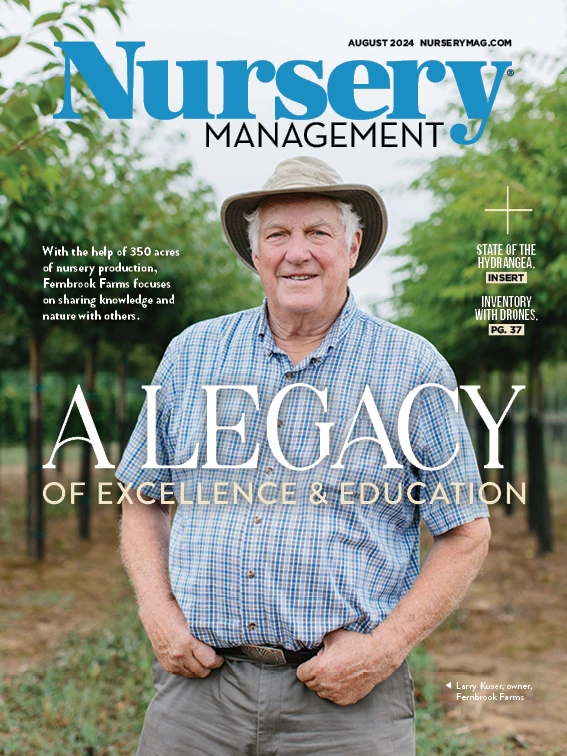
Explore the August 2024 Issue
Check out more from this issue and find your next story to read.
Latest from Nursery Management
- Pennsylvania Horticultural Society shares top gardening trends from 2025 Philadelphia Flower Show
- California Spring Trials 2026 dates announced
- Les Evans promoted to DRAMMwater segment manager, Al Zylstra to retire
- Hoffmann Family of Companies to acquire N.G. Heimos Greenhouses
- GIE Media Horticulture Group wins five regional 2025 Azbee Awards of Excellence
- How to create a sustainable plant nursery
- Grant awarded to test western U.S. wood species for use as wood fiber potting substrate
- Pennsylvania Horticultural Society announces 2025 Gold Medal Plant winners

